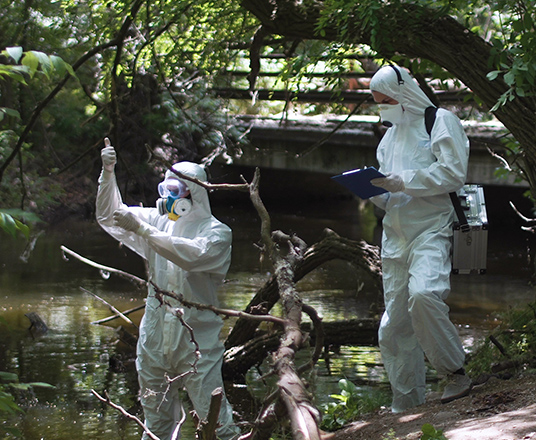Epi CASE Toolkit

When a disaster or other emergency strikes, state, local, tribal and territorial health authorities have immediate information needs. They may need to know how many people were exposed to hazardous agents (chemical, radiological, nuclear, biological or other hazardous agent), and if they are experiencing symptoms or have any immediate needs.
ATSDR modeled the EPI CASE (Contact Assessment Symptom Exposure) Toolkit after the Rapid Response Registry toolkit to help public health professionals quickly make this assessment.
This toolkit can guide public health professionals toward the next practical steps, which may include developing a health registry. While registries are a powerful public health tool, they can also be a large time and resource commitment, so many factors must be carefully considered. These tools can help guide those decisions.
EPI INFO™ TOOL LINK
Free for download
The Epi CASE toolkit gives local and state public health and disaster response agencies a way to rapidly assess persons who are affected, exposed, or potentially exposed to chemical, radiological, biological, nuclear agents, or other harmful agents during incidents.
The data collected through the toolkit can be used to generate simple descriptive statistics. The information also can be used as the basis for other epidemiologic follow up, including health studies, community assessments, health assessments, or health registries to learn more about the affected community.
Begin with the “Quick Start Guidepdf icon” for an outline. Data on affected individuals are collected by states using the modifiable Epi CASE survey form and entered into the Epi CASE Epi info database provided.
There is a training manual for the survey form and the Epi info database to assist in this process. The data can then be analyzed in Epi info or downloaded into an Excel spreadsheet for analysis. Critical data can then be provided to decision makers to recommend needed actions or services.
Completing the Epi CASE survey also provides states with a way to communicate with the affected individuals in the future if needed. The decision support tool and considerations documents help guide the next steps, which can include developing a registry.
Here are examples of some ATSDR initiated registries:
https://www.atsdr.cdc.gov/publications_health_registries.html
The Epi CASE toolkit contains materials that can easily be downloaded and customized for use.
Epi CASE Considerations word icon[DOC – 34 KB] and Epi CASE Decision Support Tool pdf icon[PDF – 519 KB] : These guide users on the best epidemiologic approach to take to address a community concern with the available Epi CASE data. Start with the Epi CASE Considerations and go from there.
EPI CASE quick start pdf icon[PDF – 408 KB] is a quick how-to flow chart
The Epi CASE fact sheet word icon[DOC – 23 KB]: An overview of the toolkit materials
The Epi CASE training word icon[DOC – 37 KB]: Learn how to use these tools with EpiInfo
Epi CASE Symptom Checker word icon[DOC – 19 MB] and Epi CASE Survey word icon[DOC – 62 KB]: Downloadable tools within the kit
During an emergency, if you need immediate assistance, you can also contact the CDC Emergency Operations Center any time at 770-488-7100 and ask to speak with someone from the Epi CASE team.
CDC Emergency Response: 770-488-7100
For state and local health department assistance.
ATSDR Regional Offices